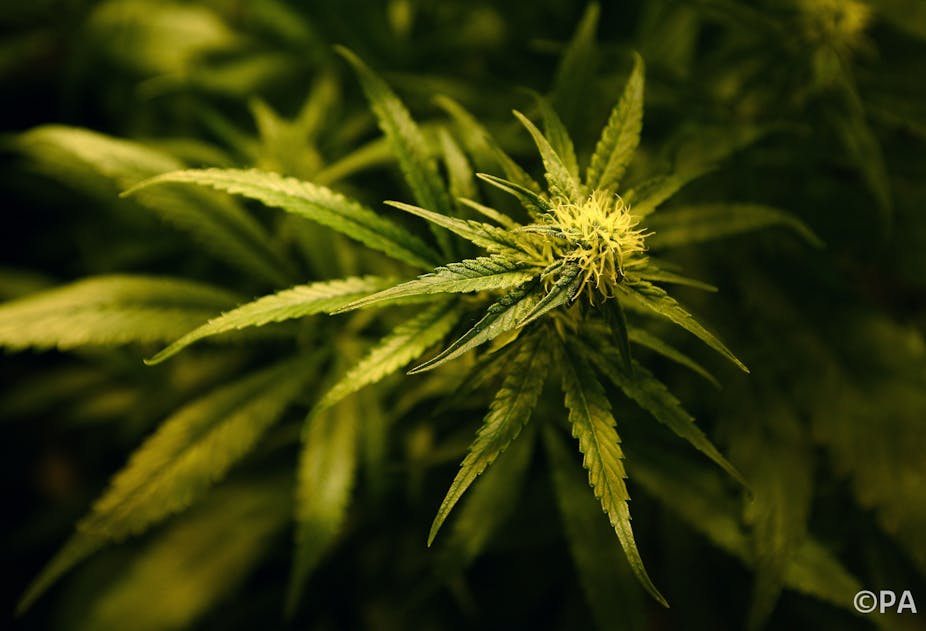A new drug that targets the rewarding effects of cannabis could help some to overcome their addiction. If promise becomes a reality after clinical trials, it could join medications that are used in the treatment of other substance use disorders, such as alcoholism and heroin addiction.
Addiction to cannabis is usually treated using psychological methods such as motivational interviewing, which explores someone’s ambivalence to making life changes, and cognitive behaviour therapy. These can be effective, but there have been very few controlled trials of these therapies. A recent review concluded there were no effective medications for the prevention of relapse to cannabis use after an attempt to quit.
But the findings of a recent study in Nature Neuroscience suggest the new drug, RO 61-8048, can interfere with drug-induced reward in the brain without producing unpleasant side-effects - and, crucially, without interfering with the brain’s response to other rewards.
Like other addictive drugs, Delta-9-tetrahydrocannabinol - or THC, the main psychoactive ingredient in cannabis - stimulates the release of dopamine in the network of brain structures that form the brain’s reward system. One potential way to treat addictions would be to give medications that block this dopamine activity, such as the dopamine antagonist drugs that are used to treat schizophrenia.
Unfortunately, these drugs have some unpleasant side-effects. More fundamentally, dopamine antagonists block all forms of reward, not just drug-induced reward, which can affect enjoyment of other rewards - such as food! - in other areas of life.
RO 61-8048 leads to increases in levels of kynurenic acid. Through a fairly complicated mechanism, this blocks the ability of THC (and similar compounds) to increase dopamine activity in the brain’s reward centre. Most importantly, it has no effect on dopamine levels when given on its own (without THC).
After receiving the drug, laboratory animals were less likely to press a lever in order to obtain injections of THC or a related compound. Other studies extended this finding. Normally, animals are more likely to press a lever to get more THC if they have been given a “priming” injection of THC or if they are given environmental signals that THC was available (these tests are considered animal models of relapse to drug use). But animals injected with RO 61-8048 did not press the lever to get THC under these circumstances.
Other experiments in the study showed that the effects of the drug were specific to the rewarding effects of THC. The drug did not interfere with the rewarding properties of another reward: food. Animals were still prepared to press a lever in order to win food pellets, regardless of whether they had received the drug or not. Also, at the doses studied, the drug had no effect on working memory. Though THC led to impairments in working memory, the drug was not able to reverse these effects.
These findings are potentially important because it has been very difficult to develop medications that block drug-induced reward without also interfering with the response to other rewards.
The safety of the drug, and its effectiveness as a treatment for cannabis addictions, should now be studied in human volunteers. However, despite the promise of this potential treatment we should retain some caution. Even if the drug is safe in humans and could reduce the rewarding effects of cannabis, it will never be a complete answer to addiction.
Prescription medications for other substance use disorders, such as naltrexone for alcohol and buprenorphine for opiates are prescribed because they reduce the rewarding effects of alcohol or heroin. However, all users have to do is stop taking their medication if they want to experience the reward again. This is also likely to be the case for RO 61-8048.
Medication implants and (injected) depot formulations may partly solve this problem. But psychological help will still be needed to prevent people from relapsing in the long term.

